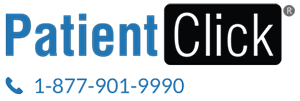Remote Care Solutions
Remote care solutions are technologies or services that enable healthcare providers to deliver care to patients remotely, rather than in person. These solutions can help patients access healthcare services more conveniently and can also help healthcare organizations expand their reach and improve the efficiency of care delivery. Some examples of remote care solutions include:
- Telemedicine: This involves using video conferencing or other technologies to allow healthcare providers to diagnose, treat, and monitor patients remotely.
- Remote patient monitoring: This involves using wearable or home-based monitoring devices to collect and transmit patient health data to healthcare providers, who can then use this data to monitor the patient’s health and provide care as needed.
- Virtual visits: These are online appointments with healthcare providers that allow patients to discuss their health concerns and receive treatment recommendations without having to visit a healthcare facility in person.
- Sleepapena Monitoring: To diagnose sleep apnea, a healthcare provider may recommend that a patient undergo a sleep study, also known as a polysomnogram. This involves monitoring the patient’s sleep using a variety of sensors, including electrodes to measure brain and muscle activity, a pulse oximeter to measure oxygen levels, and a device to measure breathing patterns. There are also a number of home-based sleep apnea monitoring devices available that can help patients track their sleep patterns and identify potential sleep apnea. These devices typically use sensors to measure a variety of sleep-related parameters, such as oxygen levels, heart rate, and breathing patterns. The data collected by these devices can be used to identify patterns or abnormalities that may indicate sleep apnea. Some of the sleep apnea monitoring devices include:
- Wearable devices, such as fitness trackers or smartwatches, that are equipped with sleep tracking capabilities
- Standalone sleep monitoring devices, such as sleep tracking apps or specialized sleep apnea monitors
- Home sleep test kits, which typically include a small device that the patient wears while sleeping to track sleep patterns and a separate device that records the data.
- Mobile health apps: These are apps that provide patients with access to health information, resources, and tools for self-management, such as medication reminders or symptom tracking.
- Remote rehabilitation: This involves using remote technologies to provide patients with physical therapy, occupational therapy, or other rehabilitation services remotely.
- Home-based care: This involves providing healthcare services to patients in their homes, using telemedicine or other remote technologies to connect patients with healthcare providers.
